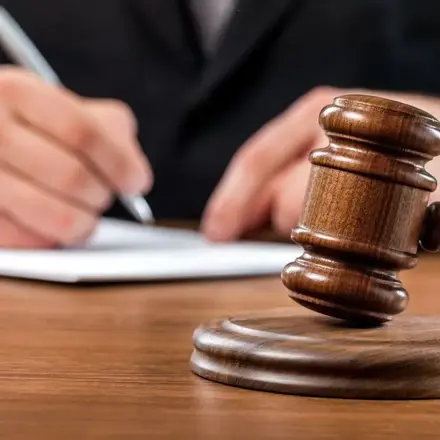Whether you're managing one property or a small portfolio, understanding what’s fact and what’s fiction can help you approach hearings with confidence.
Myth 1: "It’s Just Like a Courtroom"
The Tenancy Tribunal is more informal than most people expect. There are no lawyers in robes or juries. It is a specialised forum where an adjudicator considers the evidence and makes a decision based on the Residential Tenancies Act.
You do not need a lawyer, but you do need to be organised, respectful, and ready to present your side.
Myth 2: "I’ll Just Tell My Side — That Should Be Enough"
Verbal explanations are important, but they carry far less weight than written documentation. If you want the adjudicator to take your claim seriously, you will need:
- A copy of the tenancy agreement
- Rent ledgers
- Inspection reports
- Emails, texts, or notices served to the tenant
- Any breach or termination letters
Bring three printed copies of all evidence: one for the adjudicator, one for the tenant, and one for yourself. Label everything clearly (Tab A, Tab B, etc.) so it is easy to refer to specific items during the hearing.
Adjudicators make their decisions based on the balance of probabilities. In other words, which version of events is more likely to be true based on the evidence provided. This is why clear, organised documentation is so important. It is not about who tells the better story. It is about who can demonstrate their case more convincingly.
Myth 3: "I Can Jump In If the Tenant Says Something Wrong"
Interrupting the adjudicator or tenant is frowned upon. You will always be given a chance to respond. Make notes while the other side is speaking, then calmly refer to your evidence when it is your turn.
Respectful presentation goes a long way. The adjudicator is assessing not just the facts, but how both parties have conducted themselves throughout the tenancy.
Myth 4: "I Don’t Need to Know the Law — Common Sense Will Do"
The Tribunal makes decisions based on the Residential Tenancies Act, not personal opinions or assumptions. As a landlord, you are expected to have a basic understanding of your legal responsibilities.
For example, if you issue the wrong notice or apply the incorrect timeframe, your application may be dismissed even if the tenant was in the wrong.
Myth 5: "The Adjudicator Will Side With the Tenant"
The Tribunal is neutral. Decisions are made based on evidence, not emotions or assumptions. If your documentation is clear and your claims are supported by law, you are just as likely to get a favourable decision.
Being well prepared is more important than whether you are a landlord or tenant.
Myth 6: "If It Gets to the Tribunal, It’s Already Too Late"
While prevention is ideal, going to the Tribunal is not the end of the world. In many cases, it is a necessary step to resolve an issue and move forward. What matters most is that you approach it professionally, with your paperwork in order and your expectations realistic.
At Oxygen, we support our landlords through the process and can even represent you if needed.
Final Thoughts: What Landlords Really Need to Know
The Tenancy Tribunal is not about who can argue better. It is about presenting clear, factual information that proves your case under the law. Understanding the process and letting go of the common myths is one of the best ways to feel more confident and get a fair outcome.
If you are not sure where to start, our team at Oxygen is here to help.
Where Tenancy Tribunal Hearings Are Held in the Regions We Cover
Oxygen supports landlords throughout the Wellington and Hawke’s Bay regions. If you are attending a Tenancy Tribunal hearing, here are the main locations you might be asked to appear:
- Wellington – 43 - 49 Ballance Street
- Porirua – 4 Hagley Street, Porirua
- Hutt Valley – 10–18 Knights Road, Lower Hutt
- Kapiti Coast – usually held in local civic centres (you will be advised of the exact venue)
- Napier – 251 Hastings Street, Napier
- Hastings – 106 Eastbourne Street West
Tribunal venues are subject to change, but your official notice will confirm the correct address. If you are unsure, Oxygen can help you check your hearing details and ensure you are prepared.
Frequently Asked Questions
How do I prepare for a Tenancy Tribunal hearing?
Gather all relevant documents, including the tenancy agreement, rent records, inspection reports, and any communication with the tenant. Bring three copies and label them clearly.
Do I need a lawyer at the Tribunal?
No, the Tenancy Tribunal is designed to be accessible for both landlords and tenants without legal representation. However, having a property manager or advocate may help.
Where do hearings take place in Wellington and Hawke’s Bay?
They are held at venues including Wellington Central, Porirua, Lower Hutt, Napier, and Hastings. Your official notice will confirm the location.
Will the adjudicator always side with the tenant?
No. The adjudicator is neutral and will base their decision on the evidence presented and what is most likely true on the balance of probabilities.




